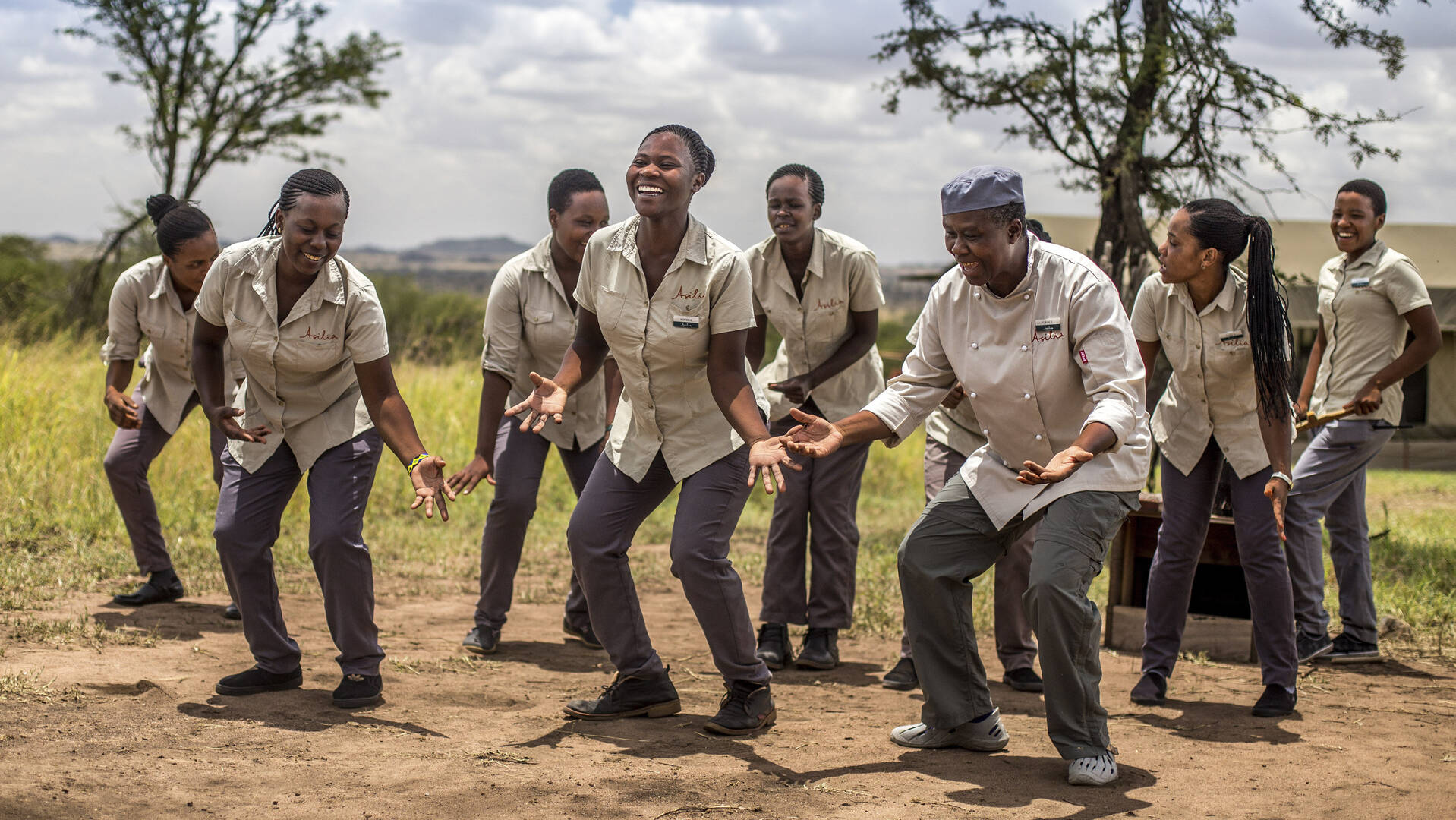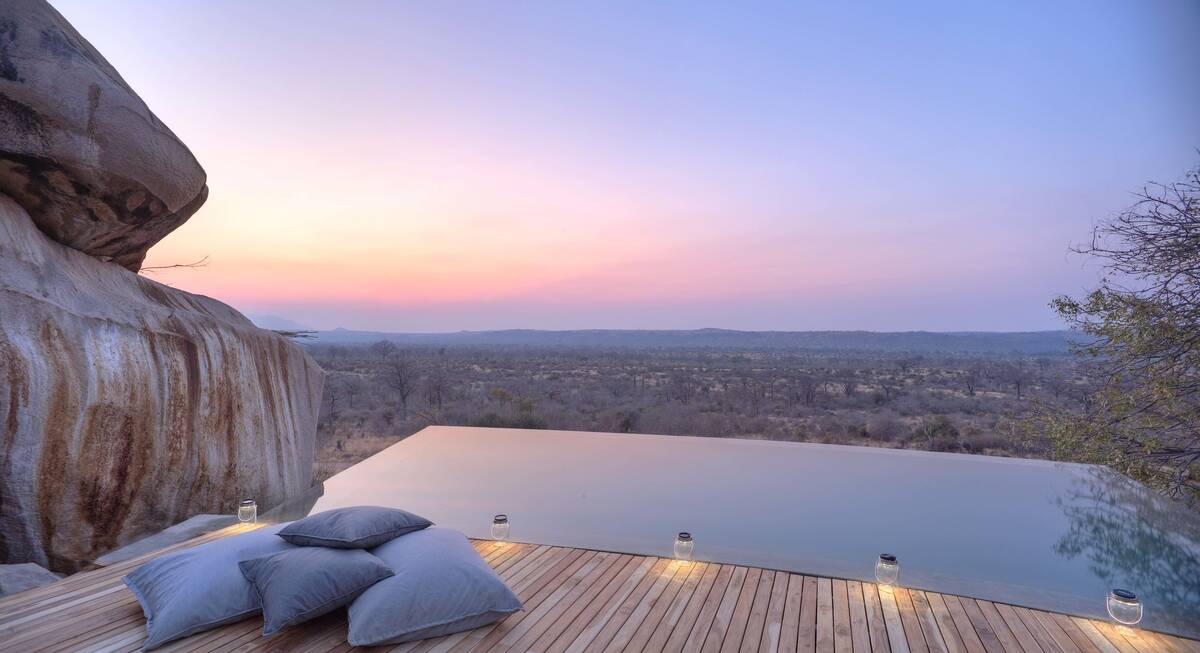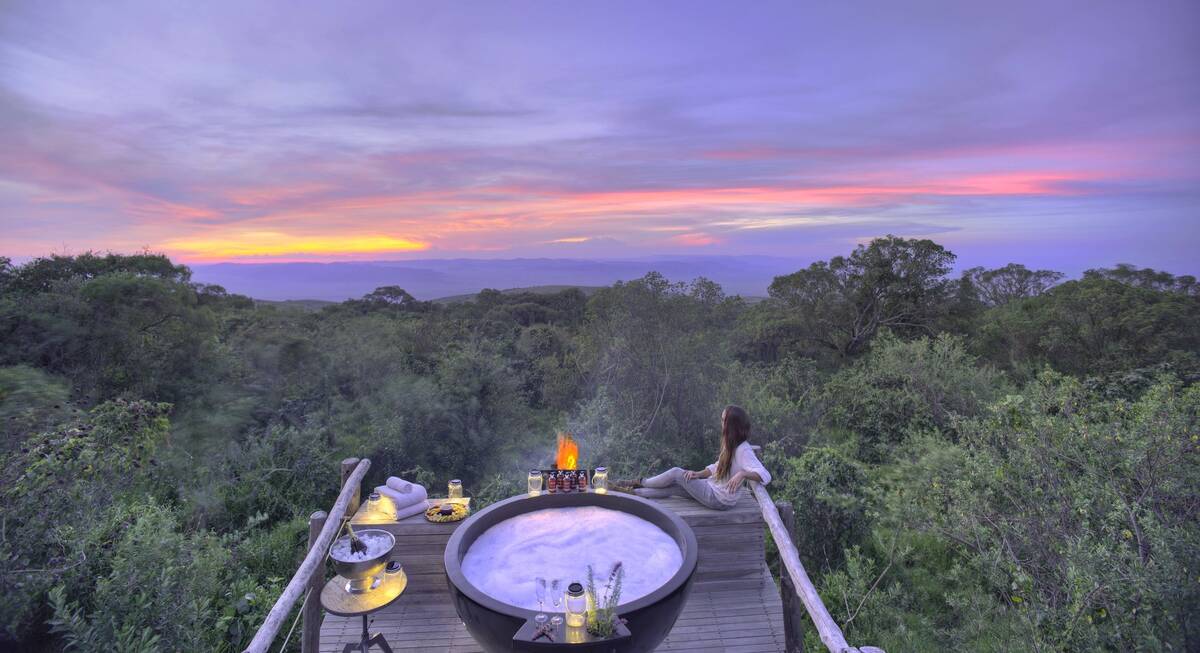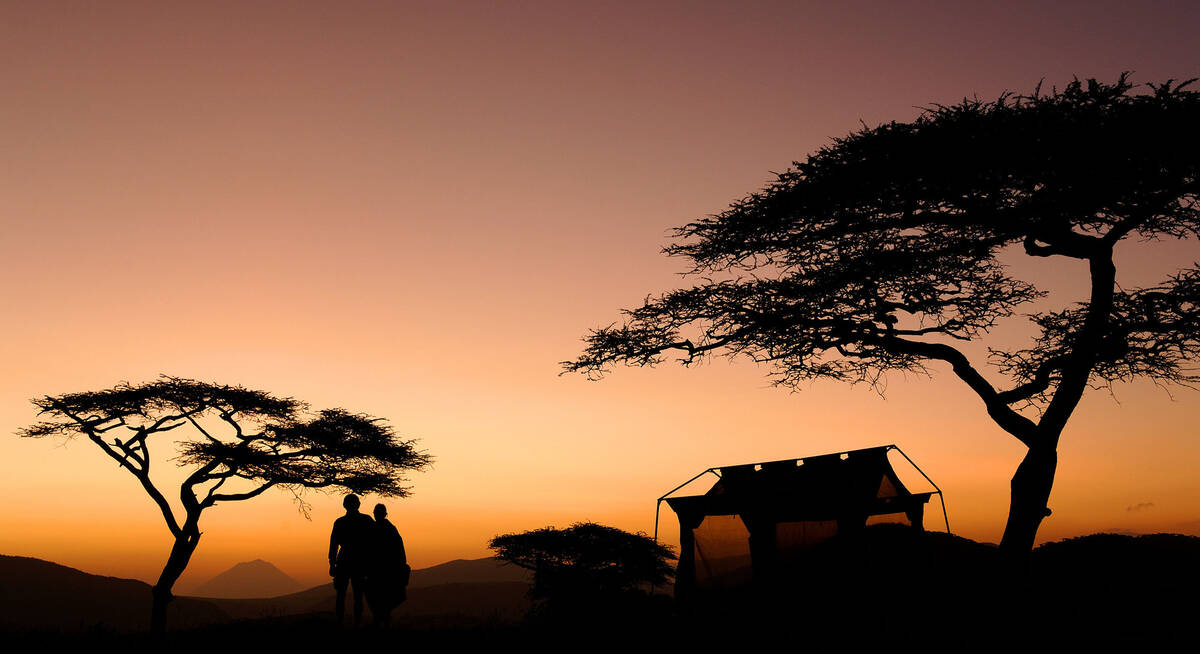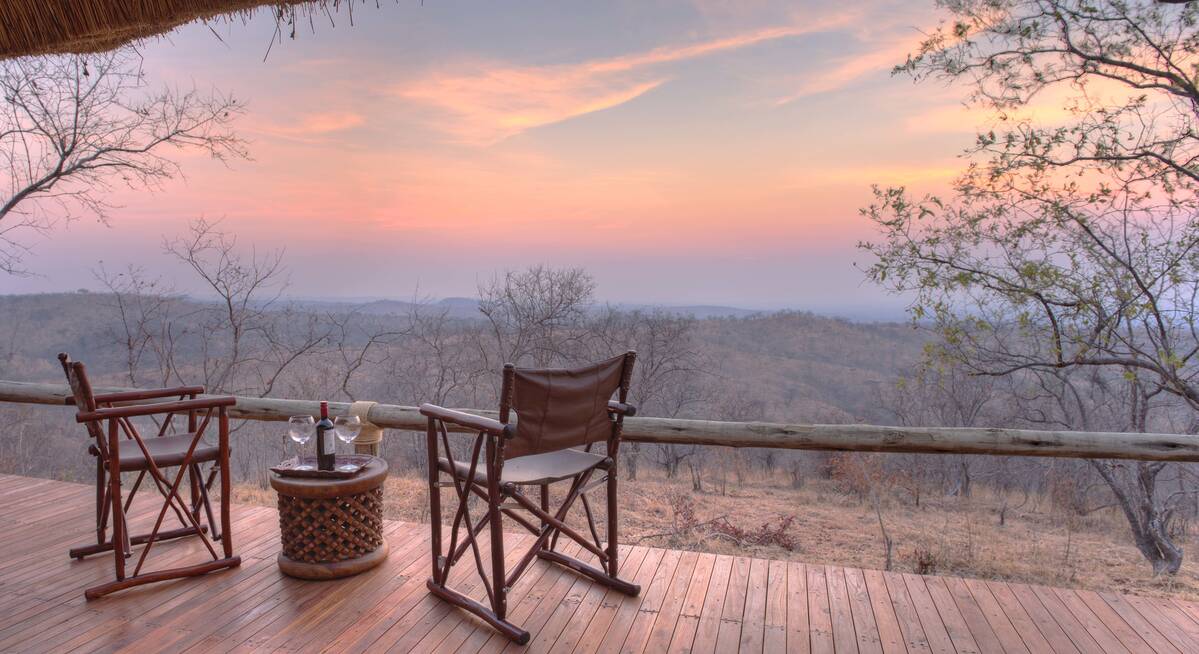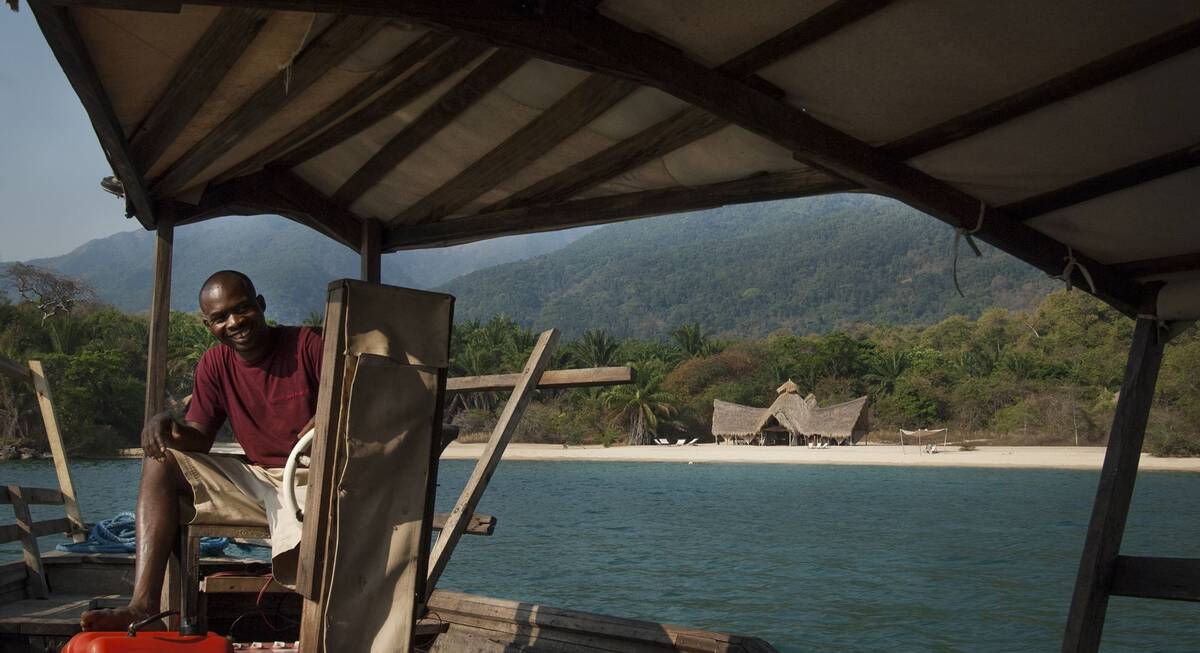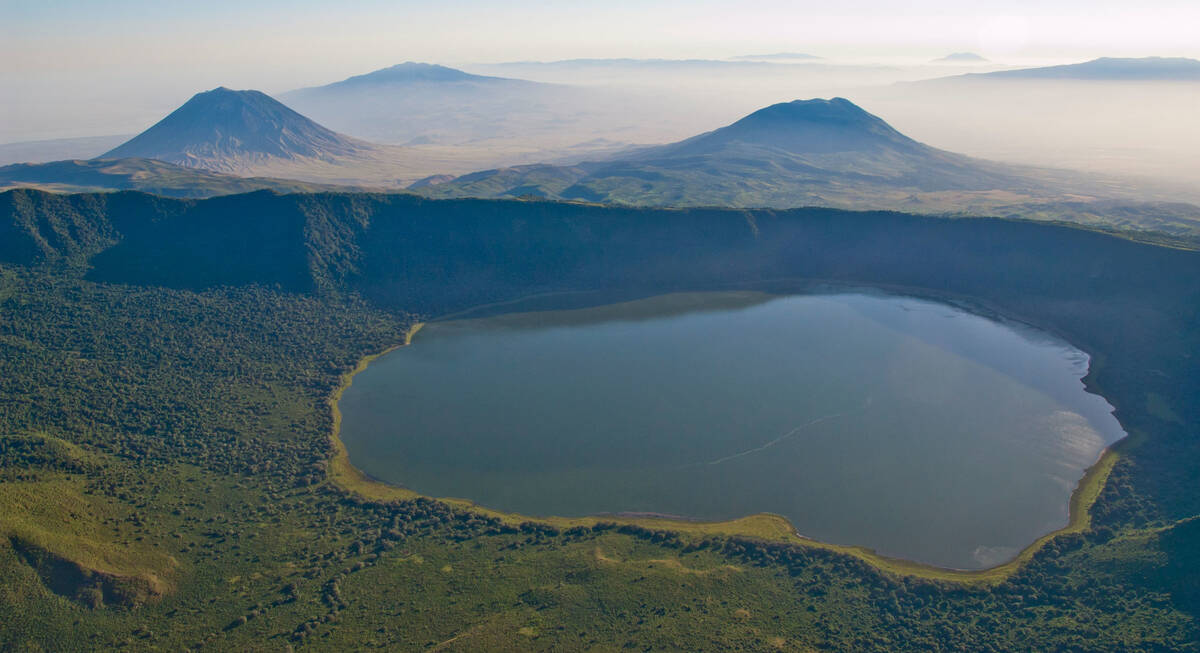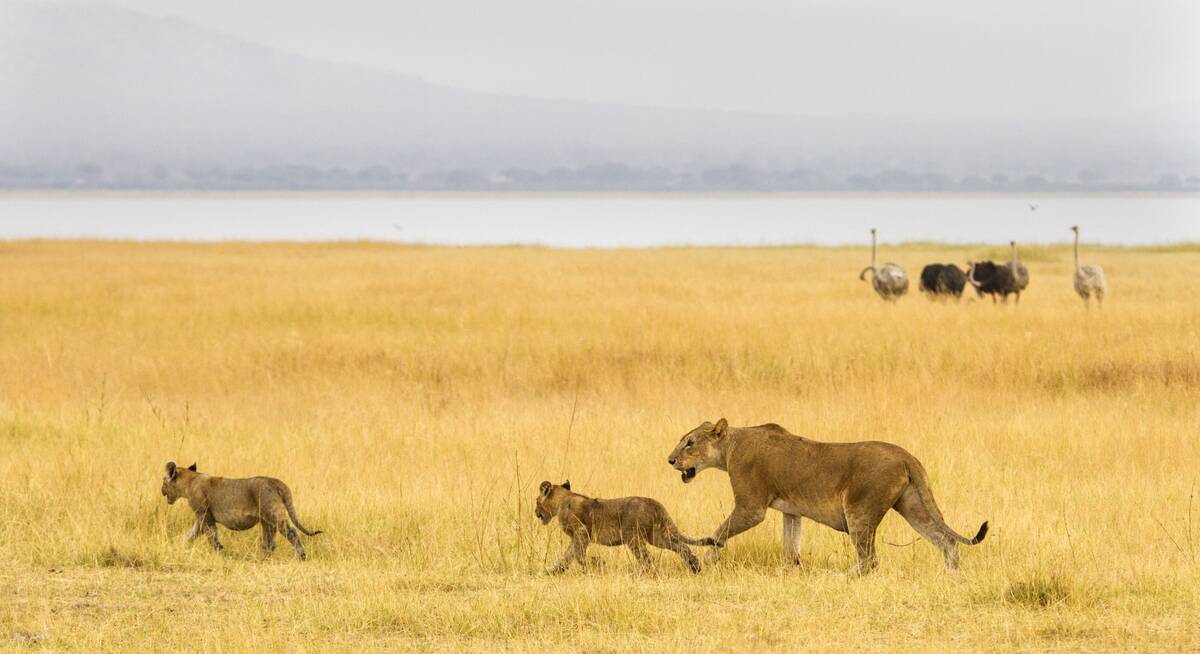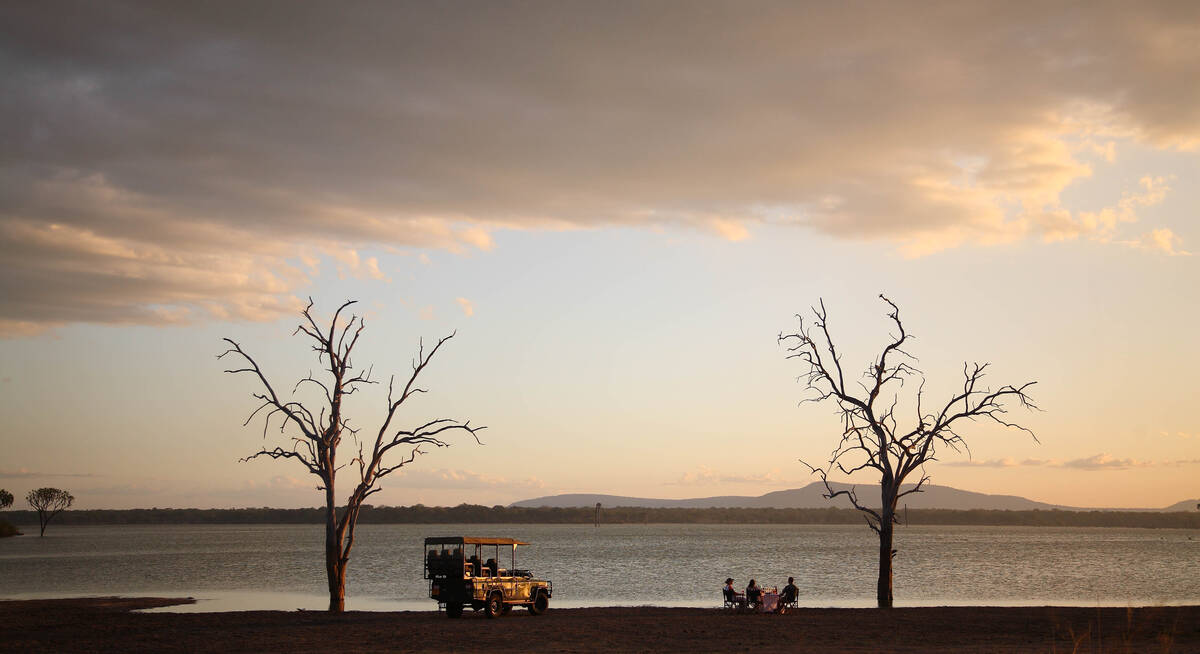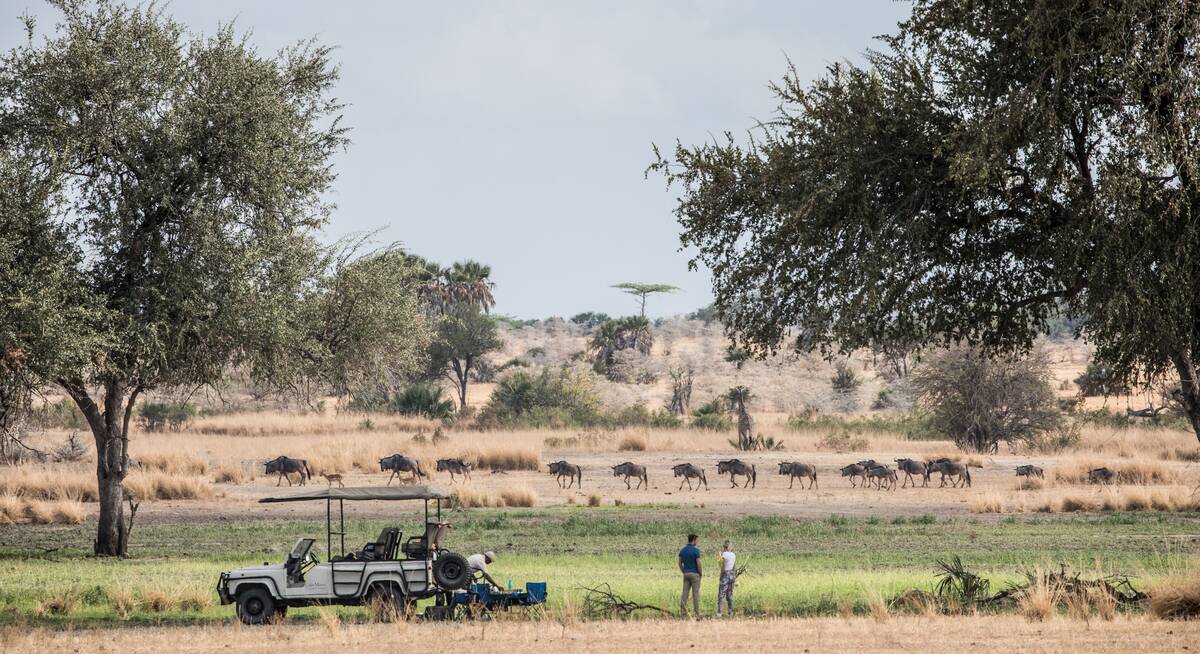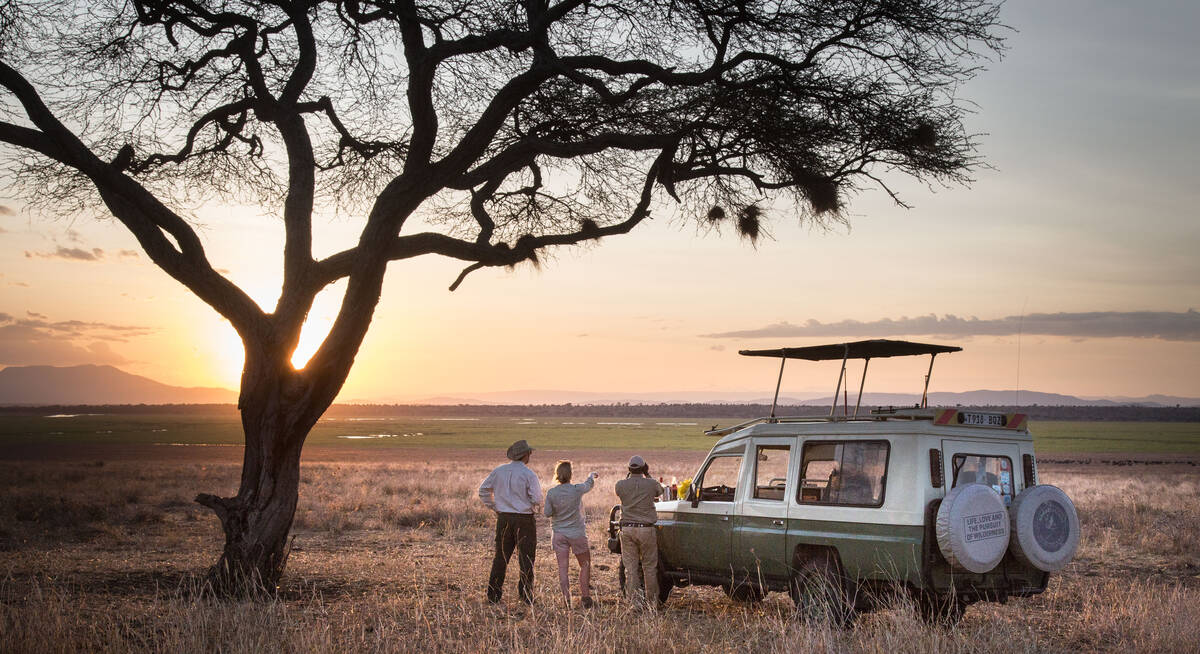Some camps explain their policy in writing and leave it in their rooms. If not, ask the manager if there’s a tip box and, if so, who shares the proceeds. Then it’s up to you whether to put everything into the box, or to tip some team members individually. In most Tanzanian camps, guides, trackers and butlers are usually tipped direct, while other staff benefit from the ‘general staff tip box’. But this varies, so do ask!
It’s most common to tip in cash, ideally Tanzanian shillings or US dollars. Although some camps offer the option to tip by credit card, this depends on their accounting practices and their ability to process cards. Tipping by card isn’t the norm in Tanzania, and it can make it difficult to direct your tips to specific members of staff.
For travellers willing to think ahead, it can work well to bring a small supply of envelopes, perhaps with a card inside on which a ‘thank you’ could be written. Then towards the end of your stay, you can address the envelopes for the individuals or groups of staff whom you wish to tip, put the appropriate amount into each, and either hand them out or put them into the general tip box.
Given that, we’d recommend that for good service, our travellers tip around:
By contrast, the equivalent GNI in the UK is about US$118.74; in the United States about USS150.58; in New Zealand about US$109.80; and in Germany about US$125.45.
In conclusion, we want to highlight that while tipping is a sensitive issue, there is no need to feel embarrassed as it is a normal part of the service industry in Tanzania. But please remember that relatively affluent visitors can have a big impact on the local economy. Tipping unwisely can distort the economic and social balance, so we would ask you to keep that in mind when you tip the staff during your safari in Tanzania.
It’s most common to tip in cash, ideally Tanzanian shillings or US dollars. Although some camps offer the option to tip by credit card, this depends on their accounting practices and their ability to process cards. Tipping by card isn’t the norm in Tanzania, and it can make it difficult to direct your tips to specific members of staff.
For travellers willing to think ahead, it can work well to bring a small supply of envelopes, perhaps with a card inside on which a ‘thank you’ could be written. Then towards the end of your stay, you can address the envelopes for the individuals or groups of staff whom you wish to tip, put the appropriate amount into each, and either hand them out or put them into the general tip box.
How much to tip
The amounts we suggest here are just guidelines based on our experience of safaris in Tanzania. Tipping is a matter of personal opinion and individual satisfaction – moderated by some understanding of the issues mentioned above.Given that, we’d recommend that for good service, our travellers tip around:
- US$8–10 per guest per day for a group guide
- US$8–10 per guest per day for a private guide
- US$8–10 per guest per day for the hotel or safari camp, which is then distributed amongst camp staff (excluding safari guides)
- US$3–5 per city transfer
By contrast, the equivalent GNI in the UK is about US$118.74; in the United States about USS150.58; in New Zealand about US$109.80; and in Germany about US$125.45.
In conclusion, we want to highlight that while tipping is a sensitive issue, there is no need to feel embarrassed as it is a normal part of the service industry in Tanzania. But please remember that relatively affluent visitors can have a big impact on the local economy. Tipping unwisely can distort the economic and social balance, so we would ask you to keep that in mind when you tip the staff during your safari in Tanzania.
Our top picks for holidays to Tanzania
We'll always tailor-make your Safari for you. Here are some of our favourites to inspire you.

Looking for inspiration on where to travel next?
Visit our trip chooser to explore your options and find inspiration for your perfect African adventure
Inspire me